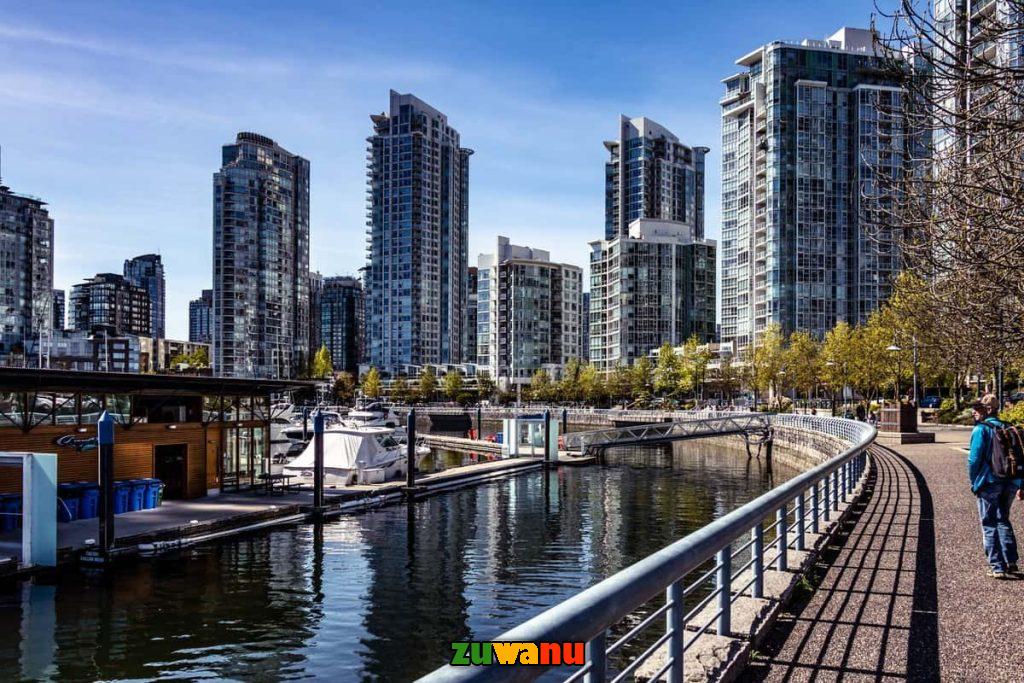How to get canada residence permit without the help of a lawyer or agents 2023

ways to get the Canada permanent resident card
There are several ways to obtain a Canada residence permit, also known as a Canada Permanent Resident (PR) card. The specific process you will need to follow will depend on the category under which you are applying for permanent residence. Here are some common categories and the steps you can expect to follow:
- Express Entry: This is a points-based system for skilled workers who want to immigrate to Canada permanently. To be eligible, you must first create an online profile and be accepted into the Express Entry pool. You will be ranked against other candidates based on factors such as your age, education, work experience, language skills, and other criteria. If you are invited to apply for permanent residence, you will need to complete the online application process, including submitting documents such as proof of language proficiency, educational credentials, and a police clearance certificate. You may also need to undergo a medical examination and provide biometric information.
- Family sponsorship: If you have a spouse, common-law partner, or close family member who is a Canadian citizen or permanent resident, they may be able to sponsor you for permanent residence. To apply, your sponsor will need to complete an application and provide supporting documents such as proof of relationship, financial information, and a written undertaking to support you financially if necessary. You will also need to complete your own application and provide documents such as proof of identity, police clearance certificate, and medical examination results.
- Work permit: If you have a job offer from a Canadian employer, you may be able to apply for a work permit, which will allow you to live and work in Canada temporarily. To apply, you will need to provide a copy of your job offer, as well as documents such as proof of identity, education, and work experience. You may also need to undergo a medical examination. If you have been working in Canada on a work permit for at least one year, you may be eligible to apply for permanent residence through the Canadian Experience Class.
- Provincial nominee program: Each province and territory in Canada has its own immigration programs for individuals who want to live and work in that specific region. To apply, you will need to meet the specific criteria for the program you are interested in and complete the required application process, which may include an application fee, language test, and other requirements.
- Student visa: If you are accepted into a Canadian educational institution, you may be able to apply for a student visa, which will allow you to study in Canada for the duration of your program. To apply, you will need to provide proof of acceptance into an educational institution, as well as documents such as proof of identity, financial support, and a medical examination. After you complete your studies, you may be eligible to apply for a work permit and eventually permanent residence through programs such as the Canadian Experience Class.
In addition to the specific requirements for each category, there are a few general requirements that apply to all applicants for permanent residence in Canada. These include:
- Being admissible to Canada: This means you must not have a criminal record, be in good health, and not pose a risk to Canada’s security. You may be required to undergo a criminal background check and a medical examination.
- Meeting the minimum requirements for your specific category: For example, if you are applying through the Express Entry system, you will need to meet the minimum points threshold and have the necessary language skills and work experience.
- Paying the required fees: There are several fees associated with the permanent residence application process, including an application fee, processing fee, and biometric fee.
Overall, the process of obtaining a Canada residence permit can be complex and time-consuming. It is important to carefully read the
instructions and requirements for the category under which you are applying, and to gather all necessary documents and information before submitting your application. It is also a good idea to seek the advice of a qualified immigration lawyer or consultant, who can help you navigate the process and increase your chances of success.
Once you have submitted your application and provided all required documents and information, it will be reviewed by immigration officials. If your application is approved, you will receive a Permanent Resident (PR) card, which will allow you to live and work in Canada permanently.
As a permanent resident, you will have many of the same rights and privileges as a Canadian citizen, including access to healthcare and education, the right to work and study in Canada, and the right to apply for citizenship after meeting certain eligibility requirements. However, there are a few limitations, such as the inability to vote or hold certain public office positions.
It is important to note that your PR status is not permanent and can be lost if you are absent from Canada for extended periods of time, become involved in criminal activity, or fail to meet other requirements. To maintain your PR status, it is important to comply with the conditions of your PR card and fulfill your obligations as a permanent resident.
You may like
how to get permanent residence in usa without marriage
How to get canada residence permit without the help of a lawyer or agents.
Yes, it is possible to apply for a Canada residence permit without using an immigration agent or lawyer. However, it is important to note that the process can be complex and it is often helpful to seek the advice of a qualified professional to ensure that you are following the correct procedures and providing all necessary documents and information.
If you decide to apply without the assistance of an agent or lawyer, there are a few steps you can take to help increase your chances of success:
- Research the process: Familiarize yourself with the requirements and procedures for the category under which you are applying. This information is available on the Government of Canada’s immigration website and through other resources such as immigration forums and online communities.
- Gather necessary documents: Make a list of the documents and information you will need to provide as part of your application. This may include proof of identity, language proficiency, education, work experience, and other documents depending on your specific category.
- Prepare your application: Follow the instructions provided by the Government of Canada for completing your application and attach all necessary documents. Make sure to double-check your application for accuracy and completeness before submitting it.
- Pay fees: You will need to pay fees as part of the application process, including an application fee, processing fee, and biometric fee. Make sure to pay these fees on time to avoid delays in processing your application.
- Wait for a decision: After you submit your application, it will be reviewed by immigration officials. You may be asked to provide additional information or documents, or you may be invited to attend an interview. Once a decision has been made, you will be notified by the Government of Canada.
If you have any questions or concerns during the process, you can contact the Government of Canada’s immigration department for assistance. It is also a good idea to seek the advice of a qualified immigration lawyer or consultant if you are unsure about any aspect of the process.
Things you can do and get your resident permit revoked
A Canada residence permit, also known as a Permanent Resident (PR) card, can be cancelled or revoked if the holder no longer meets the requirements for permanent residence or has violated the conditions of their PR status.
Some common reasons for cancellation or revocation of a PR card include:
- Being absent from Canada for extended periods of time: Permanent residents are required to live in Canada for at least two years out of every five in order to maintain their PR status. If you are absent from Canada for more than five years, your PR status may be cancelled.
- Becoming involved in criminal activity: If you are convicted of a serious crime, your PR status may be revoked.
- Failing to meet other conditions of your PR status: This can include failing to pay taxes, failing to provide financial support for dependents, or failing to comply with other obligations as a permanent resident.
If your PR card is cancelled or revoked, you will lose your right to live and work in Canada permanently and may be required to leave the country. You may also be barred from returning to Canada in the future.
If you believe your PR card has been cancelled or revoked in error, you may be able to appeal the decision. It is a good idea to seek the advice of a qualified immigration lawyer or consultant if you are facing cancellation or revocation of your PR status.

